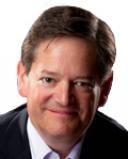Child Development
Why We're in Need of Music
How listening to music can help sooth our minds and even heal our brains
Posted March 9, 2015
In the preface to Musicophilia, an engaging collection of tales about music and the brain, the neurologist Oliver Sachs recounts a story from Arthur C. Clarke’s novel Childhood’s End. A highly cerebral species of aliens known as the Overlords have been studying the human race from their spaceship, but they have encountered one puzzle they cannot solve. Why do humans spend so much of their time playing with, listening to, and preoccupied by meaningless tonal patterns—something the humans call music?
As far as the Overlords can tell, music conveys no concepts and sets forth no propositions. It lacks the kind of images and symbols that constitute language. Yet music clearly exerts great power over human emotions and actions. This is the paradox of music, Sachs observes. “Uniquely among the arts, music is both completely abstract and profoundly emotional. It has no power to represent anything particular or external, but it has a unique power to express inner states or feelings.”
When we look at the abstract part of music and try to identify what music actually is, it’s easy to see why the Overlords were perplexed. The eighty-eight notes on a modern piano are arranged in a series of octaves, each of which is divided into twelve equally-spaced tones. This innovation, known as equal temperament, was developed in the seventeenth century and came into widespread use only in the late eighteenth century.
It is based on a universal phenomenon that occurs when a string is caused to vibrate. If you pluck a string, the entire string vibrates in one long motion, sounding what is called the fundamental tone. At the same time, the two halves of the string naturally vibrate in their own right, and so do the thirds, the quarters, the fifths, and so on, creating what are known as overtones. Each of these shorter intervals sounds the note, albeit faintly, that an individual string of that length would make. This means that in nature itself, a single note sets up a harmony of its own. Over time, this harmonic series became the basis of the Western tonal system of harmony.
This conceptual explanation of overtones would probably make sense to the Overlords, perhaps even delight them. But it does not account for the other half of the musical paradox: the fact that music is profoundly emotional and has a unique ability to express inner states and feelings.
The Pulitzer Prize-winning American poet Elizabeth Bishop describes the longing for music not as a wish or a want, but as a need. In her short, brilliant sonnet about music, she writes:
I am in need of music that would flow
Over my fretful, feeling fingertips,
Over my bitter-tainted, trembling lips,
With melody, deep, clear, and liquid-slow.
Oh, for the healing swaying, old and low,
Of some song sung to rest the tired dead,
A song to fall like water on my head,
And over quivering limbs, dream flushed to glow!
While Bishop wrote this sonnet nearly a century ago, all of us know the kinds of experiences she was talking about when she describes herself as fretful and bitter-tainted. There are lots of things to fret about today, from terrorism to inequality to antibiotic-resistant diseases. And we all suffer disappointments and losses from time to time that tempt us to become cynical and bitter.
But when Bishop describes music as a healing influence, she’s not merely using a metaphor. In an article titled “Music Can Heal the Brain,” in the March 2015 issue of Scientific American Mind, William Forde Thompson and Gottfried Schlaug write, speaking of people who have suffered from brain injury: “Imaging studies show that both listening to and making music spur activity and foster connections across a wide swath of brain regions typically involved in emotion, reward, cognition, sensation and movement… Music-based therapies seem unique in their capacity to tap into emotions, to help the brain find lost memories, to let patients resume their place in the world. We are only now beginning to understand the science behind the belief in the power of music to heal.”
When we’re feeling fretful or cynical, music can often help sooth our minds and maybe even help us find our place in the world. Sometimes music helps simply by giving voice to what we feel. Music can also lift our spirits and tap into our sense of optimism. I’m reminded of Kelly Clarkson’s buoyant tune titled “The Sun Will Rise.” She sings:
I’ve been stuck in a storm before
Felt the wind raging at my door
Couldn’t move, couldn’t breathe, couldn’t find a way out
Somehow my clouds disappeared
Somehow I made it here
Maybe just so you could hear me say
The sun will rise
The sun will rise
The song concludes with these hopeful words:
It’ll be alright
It’ll be alright
The sun will rise




